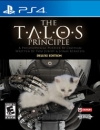Maybe its just me, but of late I have been grossly disatisfied with how reviews are done in most games. Ther eis just a consistent inconsistency that I find very troubling. And no game seems to be reviewed exactly to its own merits and strenghts but rather compared to other games that are in a similar genre. As if being more like something else is recommended.
I find points being knocked off for things that to me actually make sense or for things that in another game were praised. I see multiplayer focused games getting reviews either on the same day of release or a few days later when in truth such games probably need like 2 weeks of play to truly explore and review properly.
Simply put, I do not trust reviewers anymore. Especially when I can pretty much tell you which games will get a good review and which will get a bad review before they ae even reviewed. Bloodborne, will get 9s and 10s across the board, The order will get 7s and 8s. Halo:MCC will get 8s and 9s or 10s. Quantum break will get 8s and be unfairly categorized as an uncharted clone....etc.
So how do you make a good game review? Well, I suggest a complete media blackout by the reviewer. The reviewer basically should not have seen anything about the game at all until the day he/she sits down to make said review. No screenshots, forum posts, interviews, previews, demos...nothing. That way the reviewer goes into the game having absolutely no preformed idea of what to expect or not expect. I also suggest that reviews are done based on how the game is designed. If the game has a heavy online component, then the review should not be made till the reviewer has actually spent a lot of time online. Case in point, the kotaku review of destiny is the best one out there cause they actually invested their time in the game.
What do you guys think? And yeah I know most agree that reviews from mainline publications are generally untrustworthy, but I am just talking about how best to review games.. I am strongly considering creating a website that is free game related marketing or handouts and just purly made for gamers by the gamers. Where we can have lie 3 actual gamers make a review for a game and score it. A neutral, a hardcore fan of the series/genre and someone that hates the series/genre.






























































